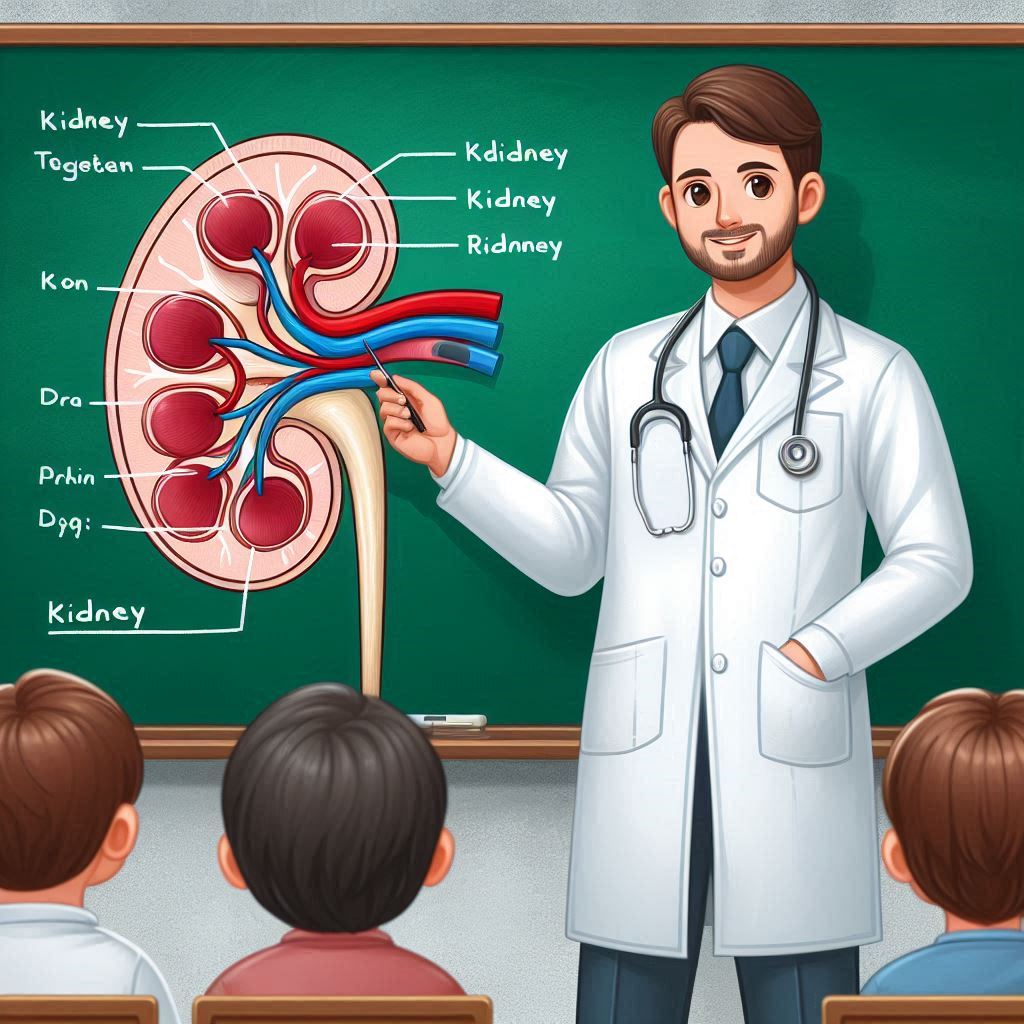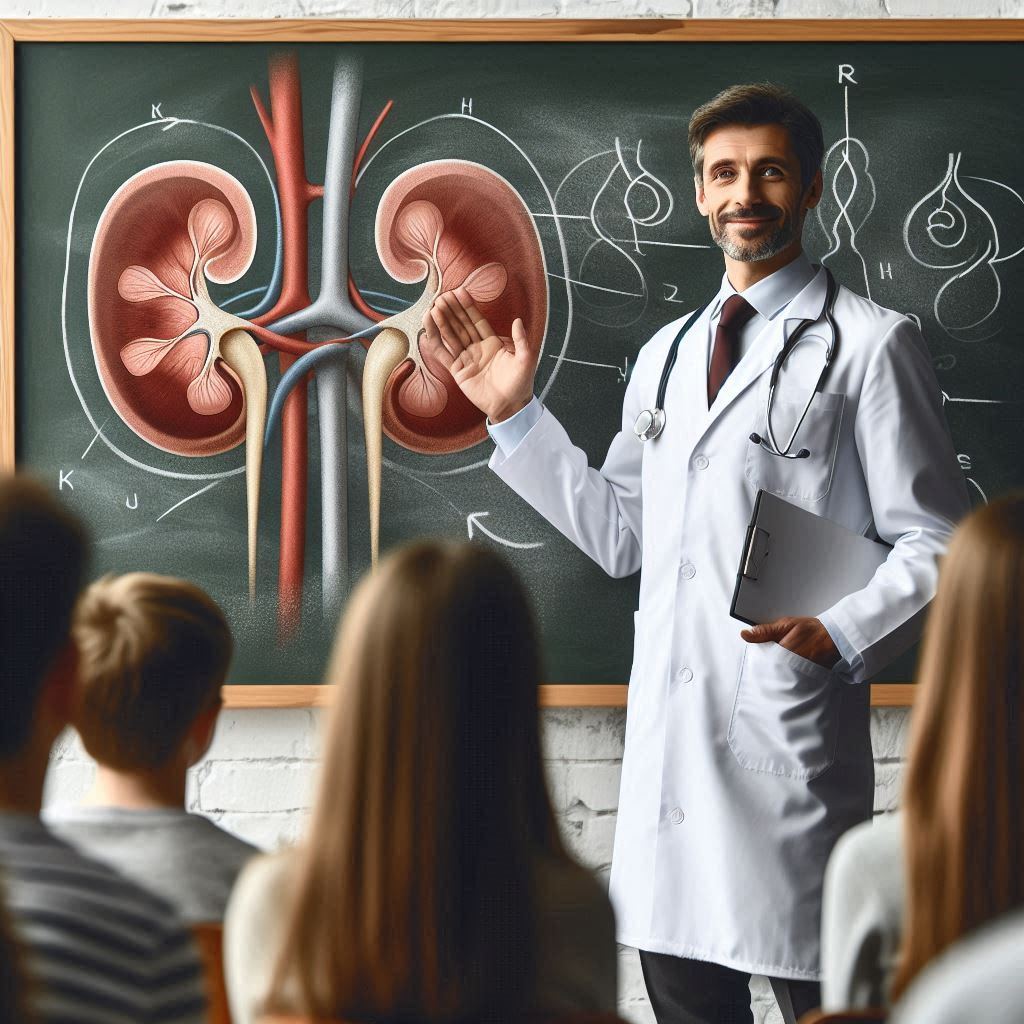結石的主要成因
體內結石的形成主要是由於某些物質在尿液中濃度過高,無法完全溶解,從而形成晶體並逐漸變大,成為結石。以下是結石的主要成因及處理方法:
結石的主要成因
飲食習慣:高鈣、高草酸、高尿酸、高鹽分等飲食習慣可能導致結石。少量喝水或出汗過多導致尿液濃縮,使結石更容易形成。
代謝異常:代謝紊亂會導致體內某些物質(如鈣、草酸、尿酸等)濃度過高。
尿路感染:尿路感染可改變尿液的pH值,促進結石形成。
遺傳因素:某些結石形成的風險是遺傳性的。
疾病:某些疾病如甲狀旁腺功能亢進、腎管酸中毒等也會增加結石風險。
結石的處理方法
增加水分攝取:保持每天至少飲用2-3升水,以防尿液濃縮,減少結石形成的機會。
飲食調整:限制富含草酸的食物(如菠菜、甜菜、堅果等),減少鈣和鹽的攝取量。控制動物蛋白和尿酸食物(如紅肉、海鮮、內臟等)的攝入。
藥物治療:醫生可能會根據結石的類型和患者的情況,開具藥物幫助溶解結石或預防新結石形成。例如,柠檬酸鹽可幫助溶解鈣結石,別嘌呤醇可降低尿酸水平。
體外震波碎石術(ESWL):通過體外震波打碎較小的結石,使其能夠隨尿液排出。
內視鏡手術:通過內視鏡進入泌尿系統,直接取出或碎石。
手術治療:對於較大或複雜的結石,可能需要通過開腹或微創手術將結石取出。
預防措施:定期體檢,及早發現並處理結石。
根據醫生建議進行生活方式和飲食習慣的改變,減少結石再發的風險。
總之,處理結石的最佳方法需要根據結石的類型、大小和位置,以及患者的整體健康狀況來決定。保持良好的生活習慣和定期檢查可以有效預防結石的形成。
The formation of stones in the body mainly occurs when certain substances in the urine are present at high concentrations, preventing them from fully dissolving. This leads to the formation of crystals that gradually grow into stones. Below are the main causes of stone formation and methods for treatment:
Main Causes of Stone Formation
Dietary Habits: Diets high in calcium, oxalates, uric acid, and salt can contribute to stone formation.
Inadequate Hydration: Drinking insufficient water or excessive sweating can lead to concentrated urine, making stone formation more likely.
Metabolic Disorders: Metabolic imbalances can result in elevated levels of certain substances (like calcium, oxalates, and uric acid) in the body.
Urinary Tract Infections: Infections can alter the pH of the urine, promoting stone formation.
Genetic Factors: There is a hereditary risk for the development of certain types of stones.
Medical Conditions: Diseases such as hyperparathyroidism and renal tubular acidosis can increase the risk of stones.
Methods for Treating Stones
Increase Fluid Intake: Ensure you drink at least 2-3 liters of water daily to prevent urine concentration and reduce the likelihood of stone formation.
Dietary Adjustments: Limit foods high in oxalates (like spinach, beets, nuts), reduce calcium and salt intake, and control the consumption of animal proteins and purine-rich foods (such as red meat, seafood, and organ meats).
Medication: Depending on the type of stone and the patient's condition, doctors may prescribe medications to help dissolve stones or prevent new ones from forming. For example, citrate can help dissolve calcium stones, and allopurinol can lower uric acid levels.
Extracorporeal Shock Wave Lithotripsy (ESWL): Uses shock waves to break up smaller stones so they can be passed out of the body with urine.
Endoscopic Surgery: Involves using an endoscope to enter the urinary system and directly remove or break up stones.
Surgical Treatment: For larger or more complex stones, surgery may be required to remove them through open or minimally invasive procedures.
Preventive Measures
Regular Check-ups: Early detection and management of stones through regular medical check-ups.
Lifestyle and Dietary Changes: Following medical advice to adjust lifestyle and dietary habits to reduce the risk of stone recurrence.
In summary, the best method for managing stones depends on the type, size, and location of the stones, as well as the patient's overall health. Maintaining good lifestyle habits and regular check-ups can effectively prevent the formation of stones.



照片:DALLE3
- 1
- 2
- 3
- 4
